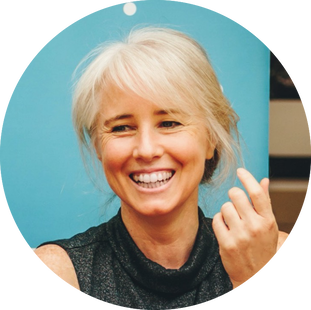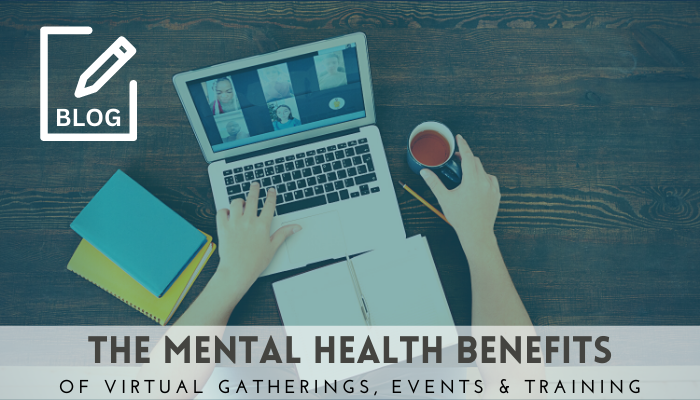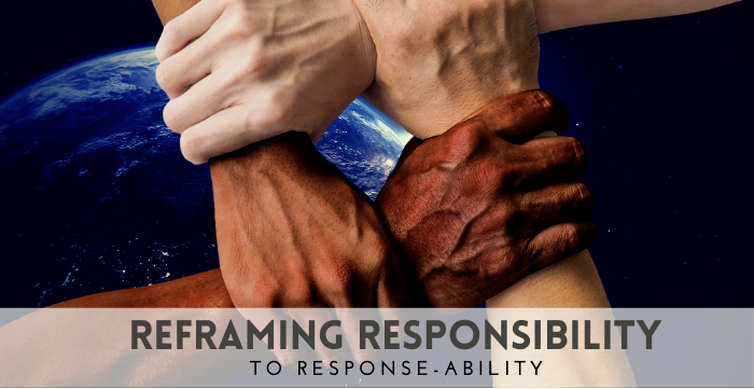|
Contributed by: Lalya Wyatt The Australian Department of Health emphasised that mental health is critical to our well-being. Virtual gatherings, events, and training programs have become increasingly popular ways to support mental health and maintain social connections during these challenging times. "Virtual gatherings and events have become a lifeline for many individuals during these challenging times, providing a safe and supportive environment for maintaining social connections and supporting mental health. Training programs can also be crucial in building mental complexity and developing new tools for navigating life,” says virtual events extraordinaire Shaun Stephens at Loghic Connect. In this article, we'll explore the mental health benefits of virtual gatherings and events and how training programs can help individuals build cognitive complexity. Virtual meetings and events offer many mental health benefits, including the following: 1. Maintaining Social Connections
2. Reducing Stress And AnxietyVirtual gatherings and events offer a safe and comfortable environment where individuals can connect with others without the added stress of leaving their homes. This can be particularly helpful for individuals who experience anxiety or stress related to social situations or travelling. Additionally, these virtual events can provide an excellent opportunity for those with introverted tendencies to participate at their own pace and engage more confidently in social interactions. By offering a more controlled and less overwhelming environment, virtual events allow these individuals to relax and engage in activities that promote relaxation, stress reduction, and a sense of social connection. 3. Providing A Sense Of Community Virtual gatherings and events can create community and belonging by transcending geographical boundaries and cultural differences. One of the significant benefits of these global virtual events is the opportunity to interact with people from different cultures and countries without the need to leave your home or office. For example, imagine participating in a leadership course alongside a manager from Dubai, a leader from Poland, a coach from Sweden, and a leader from Melbourne, all hailing from different industries. This diverse environment fosters a rich learning experience, as participants can gain insights and perspectives from various cultural backgrounds, enhancing their understanding of global issues and promoting cross-cultural communication skills. 4. Learning New Skills Virtual events (such as conferences and summits) and training programs allow us to learn new skills and expand our knowledge alongside diverse people from different backgrounds and cultures. This can help individuals build mental complexity and develop new tools to navigate life. Learning new skills can also promote a sense of accomplishment and self-esteem, improving mental health and well-being. Another significant advantage of virtual events is the ability to fit your learning into your lifestyle without travelling to a specific location. This flexibility makes education and personal development more accessible, allowing individuals to balance their personal and professional commitments while pursuing growth and development opportunities. This adaptability can lead to reduced stress and greater control over one's life, further promoting mental health and well-being. 5. Building Mental Complexity Mental complexity involves seeing multiple perspectives and understanding the complexities of different situations. It consists in having a flexible mindset and adapting to changing circumstances. Mental complexity is essential for navigating life and can be developed through training programs. Virtual events and training programs can provide tools and strategies for managing stress and anxiety, improving mental resilience, and building mental complexity. These skills can be applied to various situations, including work, relationships, and personal growth. Unlock Your Social Potential: Develop Mental Complexity For Success At Work And Life With Blue Chip Minds
Virtual gatherings and events offer many mental health benefits, including maintaining social connections, reducing stress and anxiety, and providing community. Training programs can help individuals build mental complexity and develop new tools for navigating life. Investing in these programs can help individuals take control of their mental health and well-being and build resilience for the future. Blue Chip Minds offers programs that educate leaders + individuals on the latest scientific discoveries about human potential and the human condition. At Blue Chip Minds, we understand the importance of mental health and well-being. That's why we offer programs with a blended delivery of face to face or virtual such as Life Reloaded, Superior Thinkers Toolbox, and Future Ready Leaders Toolkit to help you discover your unused potential. Contact us today for more information. I know it's hard right now balancing commercial goals with the well-being and growth of your people and somehow you did it! It is an absolute honour to work with business leaders and decision makers who not only realise that that their people must come first, above the customer and the shareholder, but they take inspired action towards making it a reality for their organisation. I often wonder how many organisations expect their tired, wired and depleted team to show up and be the best for each other and their customers, especially when they have not been able to invest in themselves first. How can a person truly connect, influence and shine for a business if at first, they can't shine for themselves? I love the challenge of working with you to help you serve your people in a way that has never been done before. I love that you knew there was a better and different way to invest in your team and when we shared our approach it resonated deeply with you, and you took immediate action to get started. I now realise you had been searching for unique and proven ways to serve your people and the business at the same time, and here we are :) I love that you generously invest in your people’s personal growth, professional development and wellbeing, to help them thrive in life so that in their thriving your workplace becomes a hive of positive and profitable activity. I admire the work you do and your bigger vision as a business to truly make the world a better place with your products and services. Instead of playing the short and finite game, your organisation plays the long and infinite game where everyone wins including your customers, clients, team members, shareholders, stakeholders, vendors and the world we share. I am forever grateful that you found us and that we have worked together to create solutions to meet your unique needs. It is a delight working with you all, most importantly and above all, we love your team, your leaders and all the people who participate in our programs, they show up, play full out and in doing so they become better humans. Together your organisation gets to meet your goals and Blue Chip Minds gets to meet ours. I admire that you listened to that deeper knowing that went against convention, you sensed and truly believed that you have to, need to, and want to do more for your people. Your commitment to building self-awareness, helping people think differently and providing a wider lens for them to see challenges in a new light and providing them with the tools to thrive… not just at work…. but in life, is a massive paradigm shift as to how organisations approached their workforce in the past. It’s because of you that I have faith in the future of humanity and big business. Your leaders have shown that they are ready to lead in a multidimensional way and now they have the tools to do it, helping your organisation to become a human centered commercially minded workforce. I can’t say I’ve ever felt this way about a business client, and not sure if it’s good for business to say this out loud, but to hell with convention right! I have to say it. I Love You! I'm thankful that we are aligned and our work together is profitable and beneficial for everyone! Thank you for reaching out. Thank you for being a modern-day Robin Hood and showing up for your people.
Thank you for caring - together we can help to make the world a better place. In gratitude Georgia + The BCM Team. Contributed by Caterina Viterale Reframing responsibility to help organisations, teams and individuals be better humans Until recently, I have had a tug-of-war like relationship with the idea of responsibility for as long as I can remember. This recent shift felt like I was handed a key to a new understanding that nested in my mind and then expanded to create a form of internal freedom. As if handed down by the magical powers that be directly into my awareness, I was offered a unique and transformative way to reshape how I look at, and understand, responsibility beyond what I had thought previously, which was always associated with a role, title or position. I now consider this a framework, a concept, a potential mapping of sorts, for how we can navigate ourselves and each other through the terrain of modern living and all of its complexities, and in this article I will be sharing it with you. So, grab yourself a glass of your favourite beverage, sit back and let’s go on a little meditative and contemplative ride of curiosity and wonder together about how we can potentially reshape how, and what, we think when it comes to responsibility. ContextResponsibility, for a very significant amount of my 32 years of life, has been an extremely heavy, yet liberating, topic and experience for me. On a personal level, it’s been extremely burdening. On a professional level, I have always thrived with some form of weight on my shoulders – a team to manage, a goal to hit, something to organise, pieces to put together. Recognising why I have these two experiences of the same topic was something I really struggled to understand and master. Why was I exceptional at managing a team, being a good leader, and exceeding professional goals, but I could barely manage my personal life? Why was it different? I couldn’t figure it out because the weight of my personal responsibility was too heavy for me to be able to look up, look around, and see things differently. Then, one day, a few months ago whilst meditating, an entirely new way of looking at responsibility came to and through me, right when I was no longer looking to understand it. And this is what I will share with you. The New UnderstandingResponsibility. Response-ability. “The application of one’s ability to provide an appropriate response to any moment or situation, whereby one has, or is perceived to have, something that is of benefit to someone or something, including themselves”. Sheesh. Good, right? Let’s highlight the many important, and specific, elements to provide us with the guidelines for putting this into practice, and break down this new way of thinking about response-ability. Application: because the rest of the definition becomes completely useless if we do not APPLY it. Simples. Ability: ability for humans is never one dimensional. It is both within and between the elements of physical, emotional and mental that we may or may not actually be able to do something. I may know you have the intellectual capacity to fulfil a task based on past experience, but not know that you’re physically unable to do so in this moment because you’re exhausted from lack of sleep as your new born child is unwell. Or because you’ve started seeing a therapist about that childhood trauma no one knows about and it’s emotionally and physically exhausting you. We may have assumptions about someone (colleague, friend, partner, parent, employee, neighbour, person at the checkout) with regards to their ability to fulfil a task, without considering the infinite number of factors that contribute to one’s ability to do so, even if it appears, they are, in fact, able to do so on face value. This is where the co-founder of the Flow Genome Project Jamie Wheal’s ‘Playground Rules’ provides a handy rule to live by: #2 “Benefit of the Doubt (Everyone's Doing Their Best!)” Appropriate: This is about emphasising whether or not we have consciously assessed the situation and considered the response we are about to make is, in fact, as appropriate as we can assess it to be. This requires a certain level of mental development and complexity - specifically the utilisation of a particular mental faculty, ‘perspective’. How many perspectives outside of our own have we considered in our analysis of an appropriate response? What internal space is this analysis coming from? Are we angry, tired, hungry (or hangry), overly excited, focused on one perspective? Does it feel rather cerebral, meaning, are we just thinking about it intellectually, or are we allowing for things such as empathy and compassion to enter our consideration of what’s appropriate? The findings of our internal investigation provide important reflections and considerations for how we may expand what we consider appropriate. Response: without getting into technicalities of dictionary meanings, I feel the significance of response is that, in embodied practice, it is very grounded. It is clear, open, attentive. It is a state of assessing as much available information as possible whilst knowing that even in this state we are unable to know absolutely everything. Thus, remaining open to the information we receive as a unique opportunity to add to our knowledge base. I want to emphasise also what it is not, and more specifically what it isn’t in comparison to a reaction. Typically, when using ‘reaction’ in conversation, there is an assumption that the reaction was a direct and immutable outcome as a result of a specific cause that is often emotionally explosive; it’s automated and without control or influence. This is definitely not what I feel a response to be. Response seeks to find the causation(s) of the present moment, assesses it in as many ways as it seems appropriate that is the most expansive and inclusive, then consciously CHOOSES an outcome. A moment or situation: this brings the mind’s attention, and the practical application of this response-ability principle, to the here and now (whatever present moment we find ourselves in). Not yesterday, not tomorrow, not in five minutes time, nor the previous encounters with this person/s in the environment we are in. It’s the here and now, which requires a specific state of mind that has the ability to absorb it for what it is, and not what it has been previously or what we anticipate it to be. Has, or is perceived to have: sometimes we know what we have, and sometimes we need others to provide the information to bring it to our attention. This is particularly useful in times when we forget that we have a skill, resource or piece of information that is so automatic in our existence that we forget we have it. Take speaking our native language as an example. Most people use it so frequently and have become so acquainted with its existence and use that they forget that it is, in fact, a skill that could be used to help others – a foreigner, a blind person who is unable to read/see something, or even as a means to voice an injustice/issue that requires attention. Something: it’s important to remember that something isn’t always an object – it can be an idea, a word, a resource, and in fact, something can even be a nothing. The thing that you may be able to provide as an appropriate response is, well, absolutely nothing (silence, for example, when listening to someone share their story). Benefit: most often, we are used to considering benefit as strictly on the positive side of the negative to positive spectrum. It is important to note, however, that benefit may also include an outcome where there is a reduction in the negative, thus, moving the indicator within the spectrum closer to the positive side and away from the extreme negative side. Someone, or something: we live on a planet, that doesn’t just have people. It has objects, other living organisms, constructs, ideas, beliefs, houses and e-v-e-r-y-t-h-i-n-g else that exists outside of our present here and now. Therefore, it isn’t just about responding to people within a moment or situation, it is also guiding us towards paying attention to, and considering the benefit of, e-v-e-r-y single thing that exists. Including ourselves: well, because, most of us just don’t think of ourselves, especially when it comes to responsibility! It’s often housed in the environment of others – our roles and duties to others and things outside of ourselves. This can create an array of negative consequences. From illness, to stress, to poor health, poor sleep, no money, poor relationships, minimal joy, and everything else that you can think of when you take a moment to reflect on all the ways you’ve neglected yourself – your body, your wants and needs, your desires, your feelings and emotions, your experiences. Now that we’ve delved a bit deeper into the elements of this alternative perspective of response-ability, let’s ask a really important question. Why is this even important?If we consider many of the issues we face globally, much of it stems from a lack of response-ability. Ask yourself: “How many times have I seen someone (including myself) dismiss an idea or action - a response – when something clearly needed to be done?” For example, a task at work that wasn’t part of your “job title/duties” so you ignored it; a conversation you avoided having about something that needed addressing but was put off and the issue became far greater than it needed to be. The list goes on. And when we collectively leave a large amount of small things unchecked or ignored, they build to HUGE mountains of things that suddenly seem too overwhelming. I mean, just take a look at the news over the last year, where do we begin? Racism? Global warming? Women’s rights? Trans rights? Education? Health? Pollution? Where? More deeply, if we consider the global social, economical, political and environmental landscape, a significant portion of it involves us needing to pick up the pieces of other people’s lack of response-ability - we are constantly having to utilise our time, energy and resources rectifying the consequences of others behaviour, decisions and actions, as opposed to showing up in the world and living a life that is full of richness and the freedom to create playfully. We are devoting the one resource that we have always known to be finite and irreversible in the physical plane – time – to resolving issues as a result of a lack of response-ability of our fellow humans in the past, instead of basking in the playfulness of existence itself. And, sometimes there’s no stronger blockage than a perception of finite time that limits our ability to be conscious and aware in our actions. This is an important segue into an often ignored, yet extremely influential element that can dramatically impact one’s ability to practice response-ability. Burdened people burden people.Photo by Ben White We’ve all heard the common phrase: ‘hurt people hurt people’, but when do we consider the reality that often, burdened people burden people? Think about the Manager who is overworked, stressed out, and feeling overwhelmed by the disproportionate ratio of their skills to the tasks required of them by those above (and sometimes, below) and so unfairly demands more from those they manage and increases their workload? The single parent, working their asses off (or are unable to), struggling to overcome a past trauma and so demands more from their child, intentionally or unintentionally? The person in a position of power who is burdened by a personal situation, who comes to work carrying that weight into a decision-making process, and then chooses the less personally consequential option that has an increased workload on others, as opposed to the harder, but more appropriate, option? What happens in all of these situations? The person burdened, begins to unwittingly burden those around them. Whether by having to take on tasks, or holding space for them to react to their stresses (as opposed to processing their emotions in a healthy manner), the weight gets distributed to others who are already carrying the burden of the people and environments they’ve previously been in. And so the burdened becomes the burdener. When we’re burdened, we cannot perform optimally, and at our best; we cannot give to ourselves, each other and the here and now moment we find ourselves in. Essentially, we cannot be response-able.So, what can we do?
2. Remember that during times of emotional, physical and/or mental internal imbalance, people are not at their best, and therefore, we need to recognise the inability of the other person to provide what we believe to be an appropriate response. A potential tool for these moments would be to become curious and ask the person we are about to request something from, “what is your current energetic, emotional, and physical capacity?” We could even go so far as to ask them to rate their levels out of 10 or 100, and if used in a team environment, whoever has the highest score may be able to take the reins for a moment to allow others to regain their equilibrium. 3. Use the description of ‘response-ability’ as a principle to live by, outside of roles, duties, status and labels – let’s perceive it as a guiding principle. The InvitationHere are nine ideas I invite you to consider to help make the shift from responsibility to response-ability a little more easier collectively. 1. It’s a paradox that we must develop in to We must both let go of, and embrace, the past and future in helping us navigate the now. In the context of providing an appropriate response, we must clear ourselves of the past conditioning and future assumptions that blind us to providing an appropriate response, whilst also utilising past knowledge and holding future ideas and plans to help us navigate the situation to the most appropriate and beneficial outcome. This can be challenging for some, as it requires a high level of mental complexity that many of us are not yet capable of, or are still developing into. Therefore, we must consider this a journey towards response-ability mastery on both an individual and collective level due to the navigation towards, and transformation to, living this as a guiding principle. Developing self awareness through mindfulness practices such as meditation can assist us in the optimisation of processing throughout the here and now and maximise the ease at which we can practice this principle fully. 2. We’re all going to be students, and teachers No one is a master at this, nor will they be. Every moment we are growing, evolving and changing, as is everything else that exists, and therefore, there will always be more to learn, to adapt to and to consider. What’s that playground rule again we need to follow? “Benefit of the Doubt (Everyone's Doing Their Best!)” 3. It’s never going to be 100% There’s ALWAYS going to be some form of “problem”. This perspective isn’t about solving and eradicating all of the tension in the world, it’s about limiting the amount of unnecessary realities we’re creating that require subsequent solutions - the burdened burdening others included. We must ensure our thinking going forward is built upon a foundation of knowing there is no final and complete utopian destination. 4. Try to refrain from worrying about over there, focus on your here Until your ‘here’ is functioning optimally and beneficially, refrain from utilising your valuable energy, time and resources on the “over there” situations – trust that they are being dealt with by those there, experiencing their own here and now within it and utilising these same principles. Make sure your house is in check first, then go out and help others optimise theirs. 5. There’s no reason not to play and have fun This piece was written deliberately with a hint of playfulness to provide a glimpse of the light-heartedness that we can bring to the spaces we occupy. It may feel as though we have a big job to do – personally, professionally or collectively as a human race - but if we bring an element of play and child-like wonder, we can get the job done in a much faster and cohesive manner. Maybe we can start asking ourselves “how can I make this a more enjoyable process?” 6. Trust ourselves, each other and the bigger picture – all of which we know very little about The greatest of minds have always proclaimed that the more they know, the more they know not. Let’s take that piece of advice on face value and act accordingly. 7. We have a choice Response-ability is a tool we can use to help us CREATE the world we want to live in – it gives us agency, sovereignty and conscious engagement, and not simply be a passer-by in this great adventure that is life as a human on this planet. Let’s CHOOSE to be the person/s we want to see in the world. 8. Not everyone is as keen as you are When we think something is important, we forget, or simply fail to consider, that whilst we are having an experience right now of something having our focused attention, so too are the people around us who we are interacting with. We must remember that no matter how important or significant we feel and believe, or even know, a thing that is requiring our attention is, we must accept and forgive those who cannot give us the energy, focus and attention we may want or need. 9. Response-ability is always a 100% game If you are conscious, and in a body that is able to move with conscious engagement, then you are 100% responsible for your response-ability - remember, existence equals responsibility. No situation is about breaking down who contributed what percentage of 100% of the outcome. It’s about taking personal accountability for our own actions, choices, and behaviours (including what we do not do), and recognising that we are 100% responsible for the contribution we made in any given moment. We shift our focus and analysis from “they did A, B and C!” (usually blame) to “what did I do here?” (self empowerment and mastery). ConclusionThe more I think about this, the more I feel there’s so much to say, develop and find clarity on how the actual practical application of such a framework fits across our lived experiences.
Though, essentially, I think it can be summed up by being more considerate of others and the environments we find ourselves in, and shifting our focus and attention from other people’s choices, actions and behaviours to our own. If we at least start from there, I trust the magnificence of who we are on a fundamental level - kindness, compassion, openness, curiosity, playfulness, joyfulness - will help us find our way. I am often astounded by the number of people who feel stuck, frustrated or challenged by life's uncertainties. I can even become a little perplexed as to why so many of my fellow humans are still ignorant to their own potential and resourcefulness. I have come to understand that how teachable a person is plays a big part in their ability to progress and move though life's challenges. Years ago I was introduced o a concept called the "Teachability Index" and I'd love to share it with you as it may just shine a light as to why you may not be progressing as you would like. Why 'Teachability' Matters If you're not teachable or coachable you won't receive the full benefits from any development interventions you invest in. Not being teachable reduces your ability to really maximize the potential lying dormant with in you. Regardless of whether you are a great teacher yourself, an expert or even highly intellectual you'll never reap the rewards from life if you are not teachable. In fact thinking you already know something is a very dangerous mindset that has the potential to stop you living a fulfilled life. Those living a fulfilled life have open minds and understand there is always more to learn. To be teachable you have to accept how much you don't know. Do you know that you don't know what you don't know? Think about that question for a while and let it sink in. Being teachable means you listen and absorb information without challenging it by disagreeing. You're not going to blindly follow it either. You're going to believe what is presented as the truth – but you are going to question it until you understand why it's true or possibly not true – you must be teachable! Understanding teachability opens the doors to a world of information, knowledge and possibilities. So how teachable are you? There is a great way to find out by calculating your own Teachability Index. The Teachability Index will help you determine how teachable you really are. Calculating Your Teachability Index There are two variables you need to consider when it comes to teachability. The First Variable The first variable is determined by asking yourself "What is my willingness to learn? “And then scaling it from one to ten. This will determine how high your willingness to learn the information is. You can apply this index across any area of life and in any form of study. You must have a high teachability index otherwise you're wasting your time. You can't read something once and think you know everything, if you do think this is the way to learn you will easily become unteachable. On a scale of one to ten what's your willingness to learn new information? To help you determine your scale, answering some of these questions may help. • What are you willing to do? • How much time are you willing to invest? • How much money are you willing to invest? • How much effort are you willing to put in? • What are you willing to give up? In most cases people think they have a high willingness to learn but they don't. The real question is – What are you willing to give up to learn this information? What's your favorite thing to do? Perhaps it's watching an enite Netflix series in one sitting, maybe you like to sleep in, what about the time you spend on social media. Are you willing to dramatically reduce the time you spend doing your favorite thing, or give it up completely so you can immerse yourself in new content, information and activities? The Second Variable The second variable is even tougher than the first. It’s determining how willing you are to accept change. If you are not happy with where you're at right now it’s obvious that something has to change. The reason the second variable is tougher than the first is because you have done things a certain way and you have thought a certain way up until this point (potentially a very long time). Your actions and thoughts continually create the results you are getting. They are patterns that you have formed in your subconscious mind and it’s these patterns that you're going to have to change to fully maximize who you are. So, really you need to ask yourself: What is my willingness to change the way I think, the way I feel about things and what I habitually do? What is your willingness to change? For example:
You may think you’re 10/10 and say convincingly to yourself… "I’m going to learn this information, but change... no, I don’t want to change anything in my life”. The Formula Willingness to Learn X Willingness to accept change = Teachability Index If you’re willingness to learn is a ten, and your willingness to accept change is a zero. Ten multiplied by zero equals zero (10 x 0 = 0). You have a ZERO teachability index, you are not teachable. You must have both a high willingness to learn and a high willingness to accept change to have a high teachability index. If you have a high teachability index you would be thinking and saying things like:
If this sounds like you, then you would score a ten in willingness to learn. If you would also be saying and thinking things like:
If this sounds like you then you would score a ten in willingness to accept change. Therefore ten multiplied by ten equals one-hundred (10 x 10 =100) – You are the perfect student. Your attitude toward growth and learning will reap rewards in a short period of time. You will quickly notice positive changes in your results because you will learn and understand new information better than most. Why Most People Fail Most People Fail Because They Refuse to Be...
Most people don't fully maximize who they are or they fail in their endeavours due to a low willingness to learn, even if they do have a high willingness to learn, they often have a low willingness to accept change. These people keep doing the same things over and over again and they refuse to change their thinking, beliefs and habits. Those unhelpful, unhealthy and unproductive habits that have been a part of your life for so long have established very strong, ingrained, neural pathways in the brain and are lodged in the subconscious. Most people find it hard to change because they lack the knowledge and deep understanding of how to form new neural pathways that will create new patterns and programs at the subconscious level. You must understand that a low teachability index is a major cause of failure. Not everyone will score 100 all of the time, there maybe some things you are not willing to change, things you won’t be willing to do and times when you may not feel like learning. Regardless it’s recommended that you check-in regularly to see what your Teachability Index score is. A simple way to check in with yourself in a situation where you find yourself, distracted, disengaged, disagreeing, bored, or saying things like "I know" ask yourself 'Am I being teachable?" Calculate Your Score Be completely honest with yourself and give yourself a score out of ten for the two Teachability Index variables.
There is no right or wrong answer with your final score. Knowing your Teachability Index score builds self-awareness and is a powerful tool for change. If you feel your score is too low… ask yourself: “What can I do to raise my score, what will it take and am I committed to doing what it takes” Now that you know how teachable you are ask yourself – “Am I happy with my current results?” You know that there are certain things in your life that could be better, listen to that deep innate calling inside of you that’s searching for more… not always more material possessions, it may simply be more of the good things in life, more time, more love, more happiness, more confidence, more growth or greater fulfillment. With a high teachability index, a high level of self-awareness and an understanding of human potential you will be poised and ready to maximize who you are and confidently self author your life. An Important note: To truly optimise who you are you must understand that your teachability index is never stagnant. You must continually consider how teachable you are because it will change from moment to moment depending on your priorities and the knowledge you have. You will always go up and down in teachability, it's like a sponge there's only so much you can take in before you become full and are no longer teachable. Being teachable means that you can't learn a new concept right now and say "I've got it” – being teachable actually means you're never going to get it… And here's the reason why… it’s because you will always be “getting it”. The best thing you can do is notice the times when you say “I know” or “I read a book on this or that topic” or “I have this or that qualification” or "I've done this before" because as soon as you say or think things like this, you automatically close your mind, you are no longer teachable and you block access to your untapped potential. Think of the times when someone has been explaining something to you and your immediately respond with “I know, I got this, I know, no need to go on I’ve heard it before”. When you react like this in that moment you are not open to the possibility of learning something new, or hearing a different perspective on a concept. You are not teachable and you can not maximize who you are. Contributor: Georgia Ellis  Georgia is the founder of Blue Chip Minds. She is dedicated to helping individuals and businesses to unlock their hidden potential, achieve personal mastery, increase productivity, tune into flow and thrive now and well into the future. Georgia curates content and provides education and application on what science is discovering about the human experience. She draws on the latest findings in: positive psychology, flow science, neurobiology, quantum theory, emotional intelligence, epigenetics and neuroscience. Georgia has worked with organisations in sectors including; banking and finance, entertainment, medical, logistics, technology, education, procurement, event management, health & fitness, manufacturing and retail. Her programs and services have been provided to people in Australia, Singapore, Hong Kong, India, United Arab Emirates, Austria, South Africa, New Zealand, Japan, France, Ireland, United Kingdom, United States, Brazil, Belgium and Canada. |
Authors
Our Contributors are a mix of passionate and switched on Humans ready to share their, career, business, well-being, leadership and performance insights with you so you can be the architect of your own extraordinary future! Archives
May 2024
Categories
All
|
Global professional development solutions for individuals and organisations.
Working with Individuals and organisations in;
Australia | Singapore | Hong Kong | United States | India | United Kingdom | Dubai | China | Poland
Malaysia | New Zealand | Japan | Belgium | Austria | South Africa | Brazil | Canada
Working with Individuals and organisations in;
Australia | Singapore | Hong Kong | United States | India | United Kingdom | Dubai | China | Poland
Malaysia | New Zealand | Japan | Belgium | Austria | South Africa | Brazil | Canada
|
We acknowledge the Traditional Custodians of the land on which we live, work, meet and play. This most often is the Wurundjeri people. We pay our respects to Elders past, present and emerging of the Kulin Nation. We extend gratitude and respect to Aboriginal and Torres Strait Islander peoples and global indigenous cultures for their incredible wisdom, resilience, deep connection to the natural environment and their deeply transformative spiritual practices.
We have so much more to learn from you. |
Copyright © All Rights Reserved BLUE CHIP MINDS 2013 - 2021








 RSS Feed
RSS Feed
